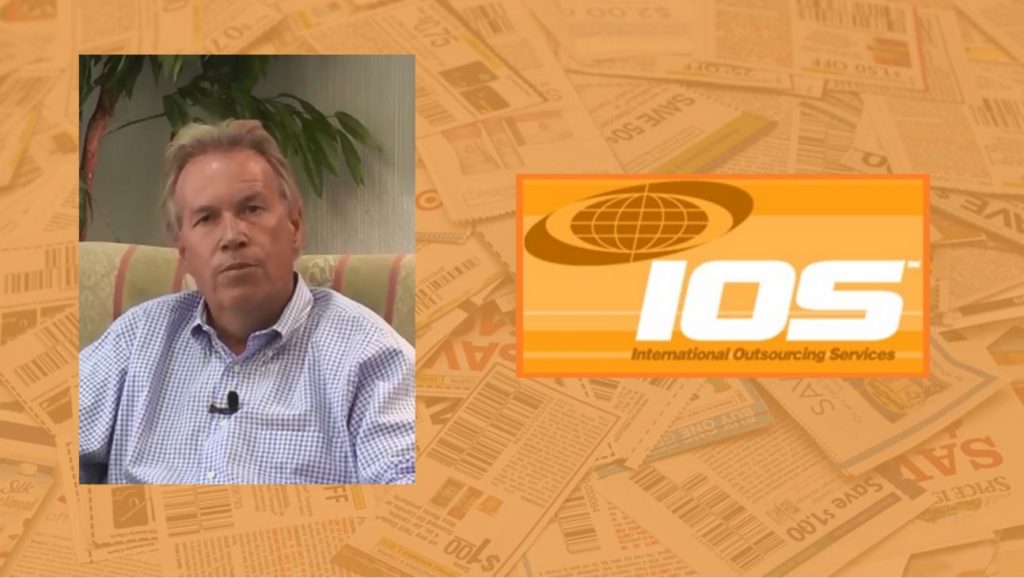
A former coupon industry executive who’s currently serving a ten-year federal prison sentence has earned a huge discount on the hefty financial penalty he owes – no coupons required.
A federal court has granted prosecutors’ request to dismiss a $21 million forfeiture order against Chris Balsiger, the former CEO of coupon processing company International Outsourcing Services. The reason? Prosecutors say he was never going to be able to pay it anyway.
Balsiger was convicted back in 2016 for heading up a $250 million coupon fraud scheme. His company, IOS, would collect coupons from retailers and submit them to the manufacturers for reimbursement on their behalf. But it turned out many of those coupons were never actually redeemed by consumers – prosecutors said they were unused coupons that IOS collected and submitted in order to skim some extra cash from the companies that issued them.
A few months after his conviction on charges of wire fraud, conspiracy to commit wire fraud and conspiracy to obstruct justice, the court ordered Balsiger to pay $65 million in restitution to the manufacturers he defrauded, and an additional $21.2 million to the U.S. government as a penalty for his crimes. But a federal appeals court, which otherwise upheld his conviction and sentencing, overturned the forfeiture order late last year, agreeing with Balsiger’s argument that the amount was excessive and wrongly calculated.
And rather than continue to fight over the amount, prosecutors in the case decided to face reality and give up.
Negotiating a revised forfeiture figure “would be nothing more than an academic exercise,” prosecutors admitted, because the government would probably never actually collect any of it. “Mr. Balsiger owes nearly $65 million in restitution, and the victims are entitled to payment before the United States collects any money for forfeiture,” prosecutors explained. “Because Mr. Balsiger appears to lack the financial ability to fully satisfy his restitution obligation, there is no longer any practical reason to pursue forfeiture.”
Now, the court has agreed, reducing the $21 million forfeiture order to zero.
That leaves the defrauded manufacturers waiting for their reimbursement – and they may get some of it soon. In exchange for dropping the forfeiture, prosecutors asked the court to order Balsiger to pay nearly a half million dollars toward his $65 million restitution amount within a year. In arguing against the forfeiture, they pointed out, Balsiger “offered to pay $474,244 toward restitution within one year in exchange for a variety of things, including having his sentence reduced to ‘time served’ and having the court fully extinguish his restitution and forfeiture obligations.” This counter proposal was unacceptable, prosecutors said, but it did show that Balsiger “has the financial ability to pay $474,244 toward his restitution within one year”.
So, as he continues to dispute his conviction and restitution order, that $21 million discount could end up costing Balsiger more than he had anticipated at this point.
While the federal appeals court upheld his conviction and sentencing, Balsiger isn’t giving up his fight. His latest move is seeking to depose a former co-defendant, which he claims could help prove his own innocence. Just before Balsiger was set to stand trial alongside former business associate James Currey, prosecutors announced a deferred prosecution agreement in which Currey would avoid conviction and punishment by cooperating with them in the case against Balsiger.
Balsiger argued that this move denied him the opportunity to have Currey testify on his behalf at trial. The data and knowledge that Currey possessed, Balsiger said, “would have proven that the prosecution’s theories on how these stores and their coupons were processed were false”. He has always claimed the scheme was not fraudulent, but a matter of “internal invoicing practices”. Prosecutors, however, contend that those “practices” involved things like “chop crews”, who were tasked with cutting coupons out of stacks of inserts so they could be mixed in with coupons that were legitimately used by consumers, then giving them a spin in a cement mixer to make them look wrinkled and used.
They say crime doesn’t pay. In this case, Balsiger may have saved himself $21 million. But with a half-million dollar bill coming due imminently, $64.5 million still to pay, and several years remaining in his federal prison sentence, that $21 million discount may not ultimately amount to much.









